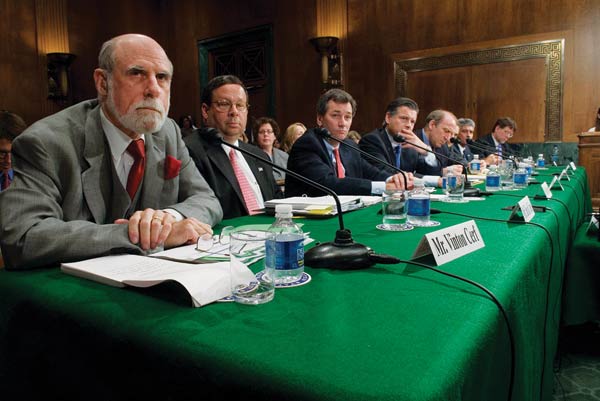Battling over Neutrality

The U.S. Federal Communications Commission (FCC) issued its draft of proposed “net neutrality” regulations in October. These rules would require Internet service providers to handle all data the same way, prohibiting them from slowing down or blocking access to specific websites or applications. Cable companies would be unable to limit video streaming from a site like Netflix; telephone companies couldn’t choke voice-over-IP services like Skype. A vote by the commission is expected by fall 2010.
Some critics of net neutrality claim that it could reduce quality of service, especially if it is applied to mobile operators, who are already struggling to control congestion caused by bandwidth-hogging smart phones.
Attempts to guarantee net neutrality through federal legislation failed in 2006 and again in 2007. The FCC believes it has the authority to introduce net neutrality rules under its existing mandate, but Senator John McCain has moved to block the commission by introducing the Internet Freedom Act, legislation that would expressly prohibit it from making such rules.
Even if that legislation fails, net neutrality faces a legal challenge: Comcast is already fighting the FCC in court over similar guidelines that the commission issued in 2004. In 2008, the commission sanctioned Comcast for blocking peer-to-peer traffic, and the company is appealing that decision. A win by Comcast could negate all or part of any net neutrality regulations the FCC might enact.
Keep Reading
Most Popular
Large language models can do jaw-dropping things. But nobody knows exactly why.
And that's a problem. Figuring it out is one of the biggest scientific puzzles of our time and a crucial step towards controlling more powerful future models.
How scientists traced a mysterious covid case back to six toilets
When wastewater surveillance turns into a hunt for a single infected individual, the ethics get tricky.
The problem with plug-in hybrids? Their drivers.
Plug-in hybrids are often sold as a transition to EVs, but new data from Europe shows we’re still underestimating the emissions they produce.
Google DeepMind’s new generative model makes Super Mario–like games from scratch
Genie learns how to control games by watching hours and hours of video. It could help train next-gen robots too.
Stay connected
Get the latest updates from
MIT Technology Review
Discover special offers, top stories, upcoming events, and more.